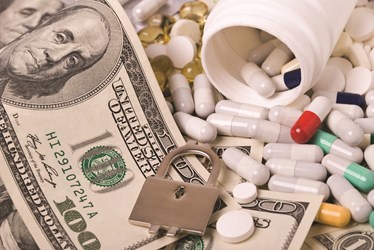TPP Negotiations Stall, Hold Back Biosimilars Market

By Anna Rose Welch, Editorial & Community Director, Advancing RNA

As if the biosimilar naming debate between brand-name pharmaceutical companies and generic drugmakers wasn’t enough, these two sides continue to challenge each other — this time, over biologics data exclusivity in the ongoing Trans-Pacific Partnership (TPP) negotiations.
Late last week, biologics data exclusivity negotiations looked like they could soon come to a close, as Bloomberg Business reported that the U.S. had abandoned its original call for a 12-year data exclusionary period in favor of a five-, seven-, or eight-year period. However, this issue (along with other non-pharma related negotiations) is still causing the involved parties to extend the discussion to a currently-undeclared date in the future.
Over the past few weeks, President Barack Obama and the pharmaceutical industry have been butting heads with Chile, Malaysia, Peru, Vietnam, and other countries in the TPP. This latest struggle follows six years of negotiations centered around the U.S.’s desire that the Pacific Rim countries observe a 12-year data exclusivity period for biologics. This exclusivity period is in accordance with The Affordable Care Act and was granted in order to “balance innovation and competition” for those companies that took the plunge into the costly realm of biologics development. During this period, the clinical data for a reference product is allowed to be kept under wraps, keeping biosimilar makers from getting their own candidates approved. A longer exclusivity period is particularly important to biologics manufacturers because this enables them to recoup the large investments funneled into development, which in turn can be used on the R&D of future candidates. However, for generics companies, this long exclusivity period threatens the entrance of cost-effective biosimilars in poorer nations and gives reference companies more power over the pricing of their drugs abroad.
Also at issue is the possibility that the proposed deal surrounding biologics could enforce patent linkage, which would allow the maker to keep biosimilar competition from the market until any patent infringement issues are resolved. While only a small number of countries in the TPP have patent linkage procedure established for biosimilars, the U.S. would have to add patent linkage to its own policies should it be approved in the TPP negotiations, The Los Angeles Times states. Despite the fact U.S. provisions permit doctors to allow interchangeable biosimilar treatments in place of the more expensive biologics, generic drugmakers fear that TPP negotiations will not include these provisions, giving biologics a preferred status over biosimilars.
When looking at the period of exclusivity granted for biologics around the world, the U.S. at 12 years stands out as being the longest. In a speech at the Senate Finance Committee hearing in April, Trade Representative Michael Froman stated, “Around the table, you have five countries that have zero years, four countries that have five years, two countries that have eight years, and we’re 12 years.” The government preliminarily accepted the pharma industry’s call for 12 years of exclusivity. However, this demand led to some upset among Democrats and the AARP, and the White House has been attempting to lower this period to seven years to no avail until now. Should this exclusivity period not have been lowered, some Democrats even threatened to walk away from the TPP agreement, in turn halting Obama’s trade agenda and stalling the entrance of cheaper biosimilars in developing countries.
There have also been concerns about the economic impact a longer exclusivity period would have domestically. Should proponents of the 12-year exclusivity period succeed, high-priced biologics in the U.S. would permanently be given 12 years of exclusivity without lower-cost generic competition. While the high prices of biologics help drug makers face the average $2.6 billion it takes to create a new drug and bring it to market, prescription drug spending rose by 12.6 percent in 2014 — the biggest increase in spending since 2002 — and the sales of biologics are expected to reach $290 billion by 2020, according to consulting firm Deloitte. However, according to Politico, if the White House were to succeed in lowering the biologics exclusivity period to seven years, federal healthcare programs would realize savings of $4.5 billion over the course of a decade. Healthcare spending hit roughly $3.1 trillion last year following the implementation of Obamacare, CNN reported.
